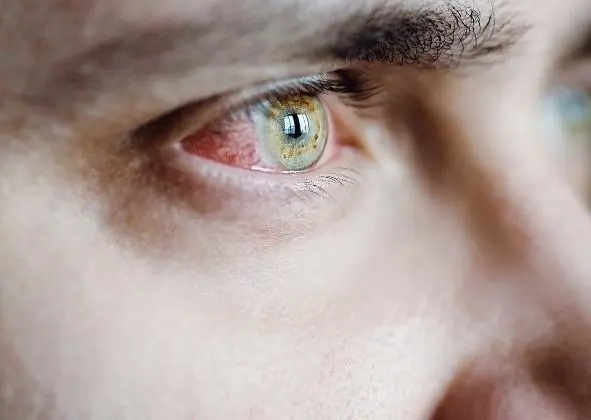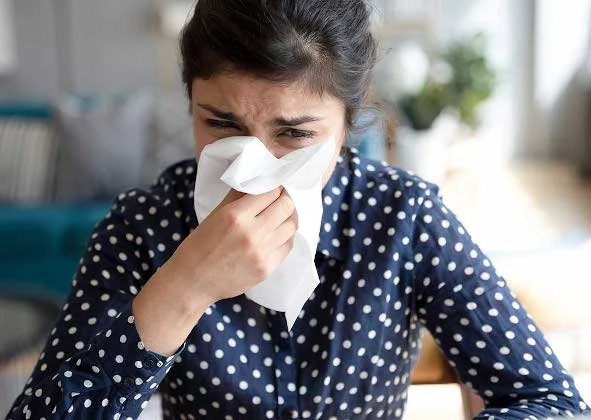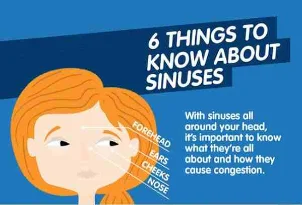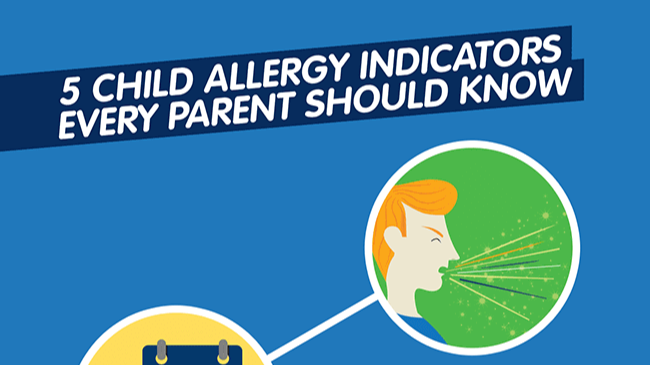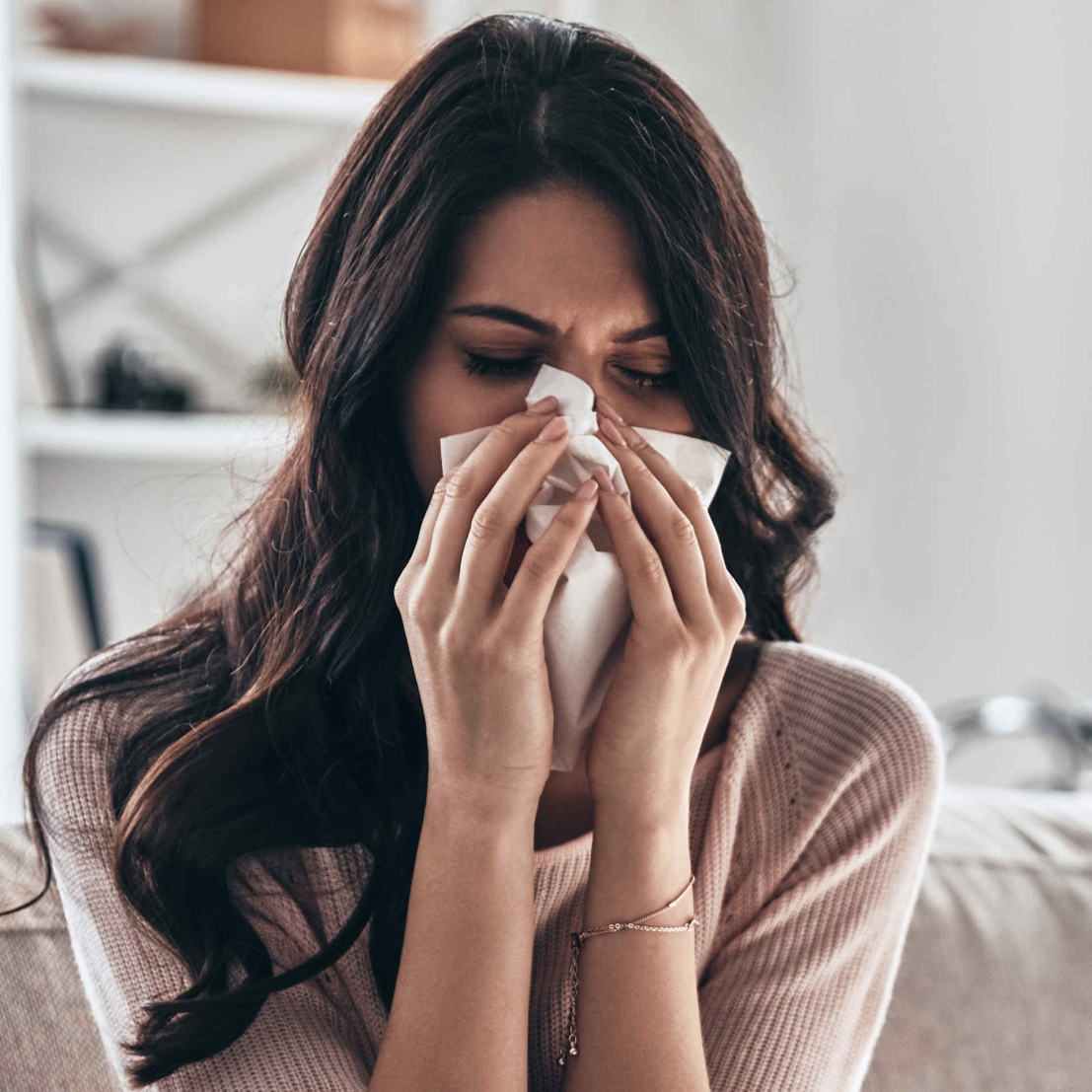Watery, itchy eyes are one of the most common symptoms of seasonal allergies.1 Nearly 1/3 of Canadians have been officially diagnosed with allergies, with some of the most common irritants being: 2
Pollen or grass (41%)
Animal or animal dander (29%)
Dust and dust mites (26%)
Symptoms of Eye Allergies
You might be asking yourself, “what causes itchy eyes?” or “why are my eyes itchy?”
Though there are many factors, itchy eyes caused by allergens is among the most common reasons.
If you’ve ever experienced irritated, red, and watery eyes during your allergy flare-ups, you’re most likely experiencing allergic conjunctivitis, or allergic pink eye.
Not to be confused with bacterial conjunctivitis, pink eye caused by allergens is not contagious.3
As symptoms appear very similar, you might be unsure of your condition. To help make things easier, here are some common symptoms of eye allergies: 3
Itchiness or burning
Watery eyes
Red or pink eyes
Tends to occur in both eyes
You should also remember that unlike a bacterial infection, allergic pink eye should not produce thick, yellow-green mucus or crust. 4
Causes of Eye Allergies
Depending on how sensitive you are to allergens, the list of triggers may seem never-ending. Some of the most common causes are things we are around every day. This can make it hard to avoid allergens.
Particles
Even if you can’t see them, your body can feel them. Particles that float in the air may scratch or provoke your eyes. This may happen on a windy day as you’re walking alongside a busy road or across your garden. Some of the most common irritants include:
Pollen
Grass
Dander
Dust
Air pollution
Smoke
Everyday Items
Staying home all day does not necessarily mean you’re avoiding eye irritants. Common household products that create mist, smoke, or fumes, can also cause an allergic reaction to your eye, especially if you are not in a well-ventilated area, or you are not wearing protective goggles, masks, or gloves. If you know you have sensitive eyes, consider avoiding triggers such as:
Cleaning chemicals and fumes
Fragrances
Air fresheners
Body soaps and laundry detergents
Keep your hands and face clean
Maintaining good hygiene and washing your hands frequently is one of the simplest ways to minimize your eyes’ exposure to allergens.
For example, if you wear contact lenses, remember to wash your hands and ensure your lenses are thoroughly cleaned before storing or using. Invisible allergens can land and stick to soft lenses, making them an easy culprit for your itchy or watery eyes.
Another tip is to avoid touching your face or rubbing your eyes in general, but especially with unwashed hands. When you are mowing the lawn or vacuuming the house, your hands become loaded with germs and allergens.
How to Alleviate Itchy/Watery Eyes
Although battling allergies can be a challenge, there are several ways to improve your eye health when you are dealing with seasonal allergies.
Avoid Triggers
Knowing what you are allergic to (i.e. pets, pollen, ragweed, dust, etc.) will allow you to avoid or manage situations where those allergens are present. If you are allergic to dander but you still own a pet, then getting an air purifier can help keep indoor air clean and free of particles. Covering your mattress and pillows with allergen-friendly covers can also help keep dusts from irritating you at night.
If you need to be in an environment where allergens are aggressive, take measures to ensure you reduce your risk of irritation; changing into fresh clothing after coming back from outside can be a good way to avoid bringing residual allergens home.
Take Antihistamines
There are also over-the-counter (OTC) medicines that can help alleviate your allergy symptoms. Brands like Reactine® contain cetirizine, an antihistamine that can help provide relief from many allergy symptoms, including itchy and red eyes. Reactine® Extra Strength and Reactine® Allergy Liquid Gels provide fast and effective relief from your toughest indoor and outdoor allergy symptoms like runny nose and sneezing, itchy watery eyes for 24 hours.
These small tablets are also easy to carry around, so tackle your allergies with confidence, wherever you are!
Allergy Shots
For those who prefer a different approach, allergy shots are available to help reduce the body’s response to allergens. Also known as immunotherapy, these allergy shots are administered monthly over the course of three years.5 If you are considering this option, be sure to consult your doctor for more information.
Home remedies
Looking for some relief while you rest or lounge at home? These do-it-yourself-at-home remedies provide fast, temporary relief of sore and itchy eyes: 6
Warm or cool compress: If your eyes are sore or swollen from rubbing, consider using a warm or cool compress cloth to help soothe them. Gently press the cloth over your eyes and leave it on for several minutes.
Eye drops: You will be able to alleviate symptoms such as redness, watery, and itchy eyes with eye drops for allergies. Consider products like Visine® for Allergy; it is formulated with an antihistamine and can help flush out particles and keep the eyes clear to help avoid infections. Eye drops for allergies can be helpful before, during, and after potential exposure to irritants.
Humidifier: You can use a humidifier to ensure the air stays moist. Avoid having the fan or air-condition blow directly towards your face as it may dry your eyes out, causing further irritation.
Grab your glasses: If you wear contact lens, consider switching to glasses until your eyes are no longer itchy, in pain or red.
Seeking Professional Help
Eye allergies can be uncomfortable and cause vision problems if not properly treated. Always consult your doctor or healthcare practitioner if you are still unsure of your symptoms. OTC medications should always be taken as directed on the label. If your symptoms persist or worsen, seek professional assistance from your doctor.
